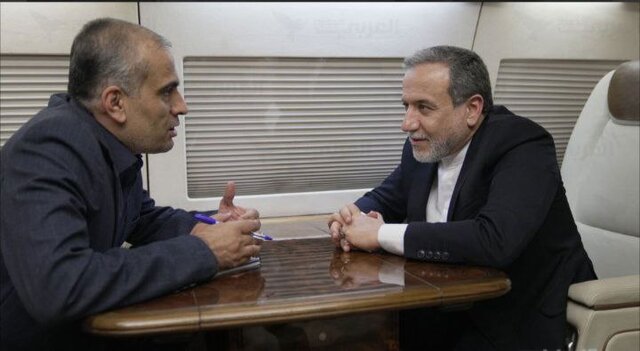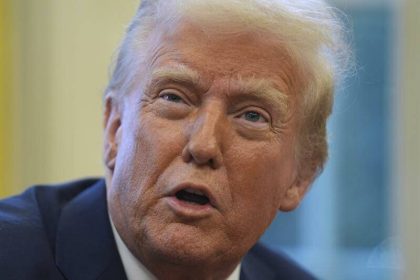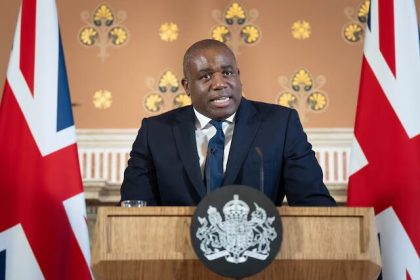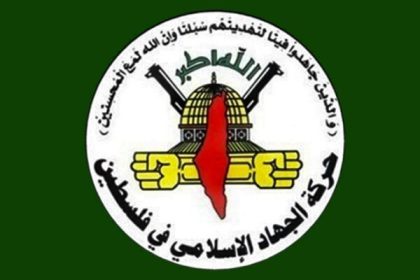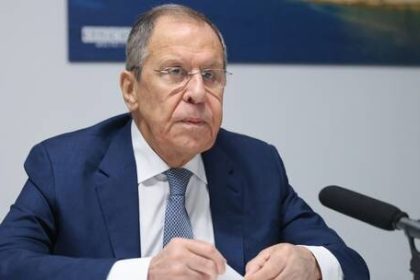Iran’s initiative to solve the Syrian crisis
Iran’s foreign minister, while expressing concern over the possibility of the collapse of the Astana process negotiations, announced that efforts are underway to calm the situation in Syria and create an opportunity to present a permanent initiative for this country.
According to RCO News Agency, Seyed Abbas Araghchi, the Minister of Foreign Affairs of the Islamic Republic of Iran, commented on various regional and international issues in an interview with the Qatari media.
Araghchi, in an interview with “Al-Arabi Al-Jadid” on Monday, on his return flight from Turkey to Iran, expressed his concern about the collapse of the Astana negotiations process and stressed that this process cannot be replaced easily.
Regarding his visit to Ankara on Monday, he said: Tehran is always looking for consultation and dialogue with Türkiye about disagreements. Preparations are underway to calm the situation in Syria and create an opportunity to present a permanent initiative.
Also, Iran’s foreign minister announced his intention to travel to Russia to investigate the recent developments in Syria and said that the expansion of the activities of terrorist groups in Syria will harm neighboring countries such as Iraq, Jordan and Turkey more than Iran.
In response to a question about the developments in Syria, he clarified that if the Syrian government asks Iran to send troops to Syria, we will consider this request.
In this interview, Araghchi once again reiterated Tehran’s official position regarding relations with its allies in the resistance axis of the region and said: Iran does not issue instructions to resistance groups in Arab countries and does not have organizational relations with them, but supports their cause and if needed It provides them with assistance.
Regarding the possibility of signing an agreement to stop the attacks of the Zionist regime on Gaza, he said: If Israel enters the negotiations with Hamas to establish a ceasefire and release the hostages, this means a defeat for Israel.
This Iranian diplomat said about Iran’s relations with Saudi Arabia that these relations are progressing at a good level and are separate from the existing relations between Tehran and America.
Regarding Iran’s negotiations with Europe regarding the nuclear issue, Araghchi also said that “Tehran has many reasons to be pessimistic about these negotiations, Tehran does not intend to talk with Washington at the moment because there is no basis for such a dialogue and we are waiting to see the new American government’s policies.” How will it be determined?
Araghchi’s interview with al-Arabi al-Jadid
Iran and Türkiye have common views and differences of opinion on regional issues
In response to this question about the evaluation of the results of his talks in Damascus and Ankara about the developments in northern Syria and its solutions, Araghchi said: Terrorist groups were advancing in Syria, then the Syrian army and popular resistance in some areas stopped them and forced them to retreat. And the Syrian army and its popular resistance advanced in some other places, this situation in Syria is constantly changing and can be reversed; 2 sides are taking measures to change the existing conditions in their favor, at the same time, political consultations should be held between the main countries of the region or even countries where some of their citizens are involved in this crisis.
He said: First of all, these consultations help to clarify the positions of the countries for each other and remove misunderstandings and prevent misconceptions. It is natural that in any development among the Muslim countries of the region, their interests and consequences are the basis for their entry into the issue. In the recent developments, considering the historical commonalities and common and continuous positions to coordinate actions, high-level consultations between Iran and Syria should be conducted, and consultations should be started between the countries that are effective in the Syrian case.
Iran’s Foreign Minister stated: That is why I traveled to Turkey and had talks with (Hakan Fidan) the Foreign Minister of this country. Iran and Türkiye have common views on many issues in the region and beyond, and it is natural that they also have differences of opinion. In both cases, we talk to each other and we have coordination and cooperation regarding our commonalities, and in cases of disagreement, we also try to reach a solution through dialogue, and if there is no solution, we should treat each other well to avoid misunderstandings. to understand
Araghchi said: I will consult with other influential and effective countries or those who have legitimate and common interests or common concerns, such as those whose citizens are members of takfiri groups, in order to complete this trip. In the whole Islamic world and the region, they need a common point of view regarding issues such as terrorism and the way to confront the Zionist regime, which is considered the source of this crisis.
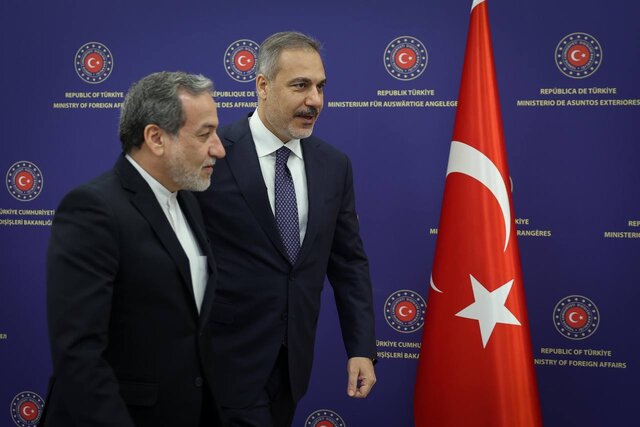
The meeting of foreign ministers of Iran and Türkiye in Ankara
I travel to Russia and other countries
In response to the question of whether he will travel to Russia, Araghchi said: Yes, I plan to travel to Russia, Iraq and several other countries, and the necessary arrangements for this trip are being made.
Regarding the effect of his diplomatic trips in alleviating Iran’s concerns regarding the developments in Syria, the Iranian Foreign Minister said: The expansion of the activities of terrorist groups and the increase of their power in Syria is not in the interest of any country, and it may harm Syria’s neighboring countries more than Iran. I think that these countries, including Turkey, Iraq and Jordan, have more concerns and are more quickly affected by the internal developments in Syria than others, and if terrorism spreads in Syria, these three countries will face a threat due to the long common borders they share with Syria. .
He said: In fact, our region needs stability and peace, and if we do not take care of this issue, our past years’ experience shows that regional stability can be disrupted. We have the experience of the ISIS terrorist group and its crimes and attacks on the countries of the region. There is a high possibility for the emergence of such groups. Based on this, there are common concerns about the development of terrorist takfiri groups in Syria, and we must deal with this issue together.
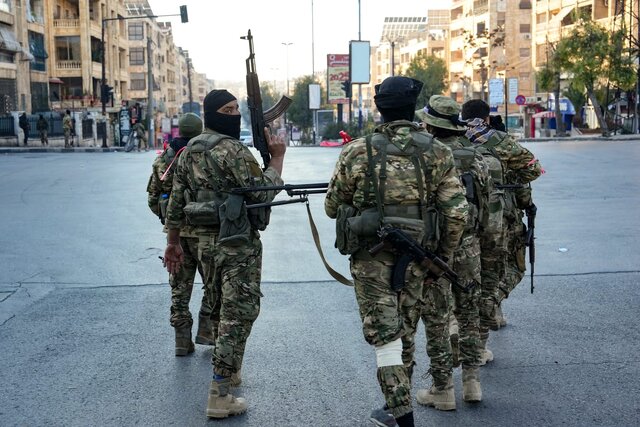
Terrorists in Syria
The United Nations has confirmed the nature of terrorist groups
In response to the question whether Iran considers any Syrian who opposes Bashar Assad as a terrorist, Araghchi said: “It is not a matter of opposing Mr. Bashar Assad, opponents and critics can always express their opinions and the reasons for their opposition through legal mechanisms, but this is with Armed action against the ruling regime that has a seat in the United Nations and is responsible for the defense of the land and the country is different. First of all, we are facing Tahrir al-Sham or Jabhat al-Nusra, which the United Nations considers terrorist, there is no doubt that there are opponents inside Syria with whom the Syrian government previously cooperated and held talks with; Terrorists are terrorist groups that use weapons and violence to achieve their political goals and kill innocent people, and the United Nations has also confirmed the nature of these groups.
In response to the question why the allies of the two sides in the region failed to reach a solution to the crisis after 13 years since the beginning of the Syrian crisis, the Iranian Foreign Minister said: This was what we were doing in the Astana process. which was formed with the same purpose by Iran, Turkey and Russia and to support the people and the government of Syria in the field of implementing reforms, establishing national peace and reconciliation and solving similar issues. The three countries pledged to contain the factions close to them, and I am very worried about the collapse of the Astana process, that the failure to achieve its goals will cause it to collapse, while it is not easy to find an alternative to this process. After my consultations with Mr. Fidan, I agreed We decided to hold a meeting for the Astana process as soon as possible, and this could be a good move.
Regarding the accusations of the two Syrian sides against each other regarding the attacks in the de-escalation zones according to the Astana process, he said: Look, we do not deny that the Syrian government has committed or is making mistakes, the opposition is also the same, but in the case of armed terrorist groups, their nature and purpose is clear. Yes, it is important to think about solving it if there is a problem. I think when there is a family problem, no one brings a terrorist to kill his brother; What is being proposed is an excuse, we must not forget that Aleppo and Idlib are part of the geography of Syria and the territorial integrity of Syria must be respected.
Regarding sending troops to Syria, this Iranian diplomat also said: This issue depends on the request of the Syrian government, if such a request is made, we will examine it.
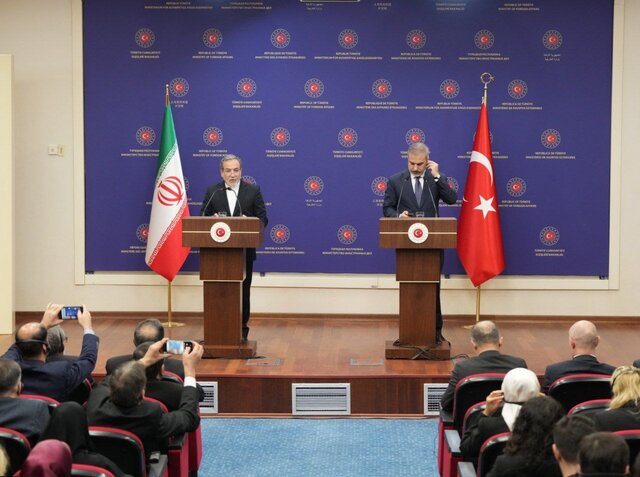
Araghchi and Fidan press conference in Ankara
We had a responsible, frank, constructive and transparent conversation in Türkiye
In response to the question whether during his trip to Ankara, the Iranian Foreign Minister presented a practical initiative regarding the current crisis to discuss it with Turkish and then Russian officials, he said: “We are at the beginning of the stage of political consultations and also to contain the tension in order to protect We are concerned about the lives of the Syrian people and creating a path to send aid to the people, then we will activate the negotiations of the Astana process and remind the responsibility of the United Nations to maintain world peace and emphasize the need to increase measures against the terrorist groups included in the list of this organization and also We will expand consultations with other important countries in the region, such as Jordan, Iraq, Egypt, Saudi Arabia, Qatar, and other countries, and we will also hold negotiations with countries whose citizens were illegally transferred to Syrian territory by Jabhat al-Nusra, Tahr al-Sham, or other terrorist groups. These are the preparations that we will have to calm the situation and create an opportunity to present a permanent initiative and follow up on the implementation of this solution.
In response to the question that some in Tehran accuse Turkey of supporting the Syrian opposition to carry out these actions, he said: Turkey, like any other actor in Syria, has relations and commonalities, and at the same time, it has worries and concerns. We always consult with Türkiye on how to resolve these concerns or provide benefits from these relations and commonalities. The Astana process was started for this reason, to create mechanisms to prevent countries’ concerns from turning into conflicts, and we expect Turkey to move in this direction.
In the continuation of this part of the interview with al-Arabi al-Jadid, Araghchi expressed his assessment of the negotiations with the Turkish Foreign Minister as follows: We had a responsible, frank, constructive and transparent conversation. In the previous trip, we also held discussions regarding the conditions in Palestine. This time, the negotiations included the issue of Syria. We are always looking for consultation and dialogue about our differences of opinion and strengthening the common points of our views on various issues. In this meeting, I emphasized that the role of the Zionist regime in creating tension, chaos and conflicts in the region and Syria should not be ignored, this neglect is a big mistake and we fully support the Syrian government.
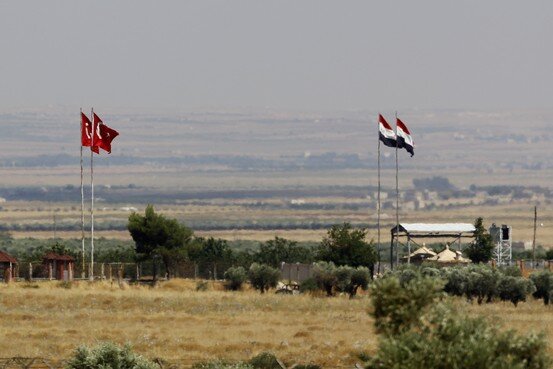
Türkiye-Syria border in 2012
Syria’s request from Türkiye is not unreasonable
Iran’s foreign minister about the proposals made by Turkey in the last 2 years for a meeting between the president of this country, Recep Tayyip Erdogan, and his Syrian counterpart, Bashar Assad, and the condition of Damascus for this meeting, and the opinion of some experts that if this Had the meeting been held, the recent developments would not have happened, he said: The Islamic Republic of Iran has always supported the dialogue between the governments of Turkey and Syria. He wants that this request is not unreasonable and that he wants Türkiye to set a timetable for this action. This is the position of the Syrian government and so far no talks have been held between them.
He stated: We always believe that dialogue between the two sides is necessary, but Syria’s request is not unreasonable either. Iran believes that dialogue between Turkey and Syria is necessary, but entering into a fruitful dialogue from an equal position requires understanding the desire of the Syrian government to recognize and respect the right of national sovereignty and territorial integrity, and this is not unreasonable.
In response to Al-Arabi journalist’s statement that Iran pressured Damascus to oppose the meeting with Erdogan, while Russia pressured Damascus to agree to this meeting, he said: “No, this issue is completely the opposite, we always want to hold a dialogue in We have recommended every level. Usually, the dialogue starts from the low levels and reaches the high levels and between the heads of the countries. It is important to establish good relations between the two neighboring countries of Syria and Türkiye. We recommend this dialogue. The condition for the withdrawal of Turkish forces from the Syrian territory has also been determined by the Syrian government itself, and it cannot be considered unreasonable.
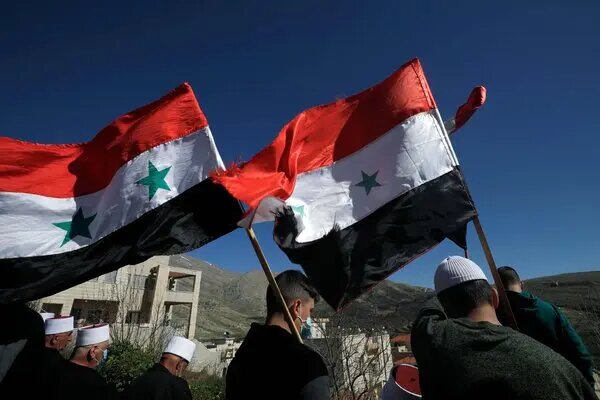
Syrian people on the border of this country with occupied Palestine
Syria is in the front line of confronting the Zionist regime
Iran’s foreign minister said about the policy of the Islamic Republic of Iran since the beginning of the Syrian crisis and its support for Damascus: “Syria’s internal issues are related to Syria and its people.” Our approach regarding Syria is based on the fact that this country is in the front line of confronting the Zionist regime and this stems from the position of resistance. Our approach in the past was that what happens in Syria is mostly ordered by foreign agents It is special for the Zionist regime to get Syria out of the axis of resistance.
Araghchi said: If the goal was really to carry out democratic reforms, it should have been done in a different way, but the real and behind-the-scenes goal, which many countries in the region do not pay attention to, is a Zionist conspiracy to remove Syria from the axis of resistance. The entry of the Islamic Republic of Iran and the support of the Syrian government was done on this basis. We supported any just and peaceful reforms. Basically, the negotiations of the Astana process were started with the aim of supporting these reforms, despite this, no good progress was achieved, and this is a weakness, but the core of the problem still exists, and that is the Zionist conspiracy to remove Syria from the axis of resistance.
Araghchi, in response to the statements of Al-Arabi Al-Jadeed reporter about the existence of a regional and international plan to dismantle Iran’s arms in the region and movements against Yemen and Iraq after Lebanon and Syria, said: “They are not Iran’s arms, they are resistance groups that fight for their own just goals.” . The Palestinian nation is not an arm of Iran, they are fighting for the liberation of their land, Lebanon is also fighting for the liberation of its land, the resistance groups took action to support Palestine. Today, Yemen’s problem is only Gaza.
Iran’s Foreign Minister stated: I want to say that the approach of many Western and Arab media in this regard is due to a lack of deep understanding of the intellectual basis and connection between Islamic countries and nations, which has been systematically killing for decades since the occupation of Palestinian lands. A defenseless nation and the silence of the West are suffering in this regard. It is wrong to say that Iran has arms in the region, it is not like that at all.
He said: There is an ideology for the realization of justice that is sought in the region. We call it resistance against the Zionist regime and its attacks and crimes. They are fighting for the freedom of their land and for the right to determine the fate of the Palestinian nation and for justice. The Islamic Republic of Iran does not give instructions to these movements and does not have organizational relations with them, but rather supports and supports their cause and gives them assistance if needed.
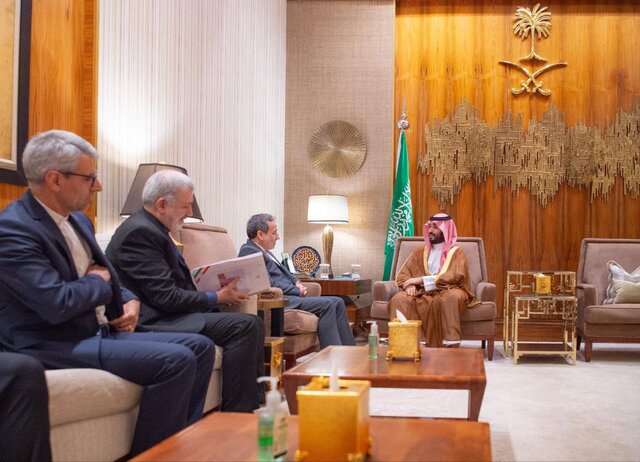
Araghchi’s meeting with Bin Salman in Saudi Arabia
The relations between Iran and Saudi Arabia are progressing at a good level
In another part of this interview, he said about his assessment of the current relations between Iran and Saudi Arabia, which have expanded over the past 2 years: Our relations are progressing at a good level. Iran and Saudi Arabia are two big countries in the region, and I believe that peace, stability, tranquility, and progress in the region depends on the peace, stability, and tranquility between these two countries and the role they play. During the last 2 years, we started a movement that seems to be effective. The amount of tension in the region has decreased to a great extent and Iran’s relations with the countries of the Persian Gulf region have improved, the region and the Persian Gulf region have been in better conditions, and this is in the interest of all countries in the region, and God willing, we will continue the same process.
In response to the question whether the relations between Iran and Saudi Arabia will have a positive effect on Trump’s policies towards Tehran in the next four years, the Iranian Foreign Minister emphasized: these two issues are separate from each other, our relations with Saudi Arabia are separate from what It is established between us and America.
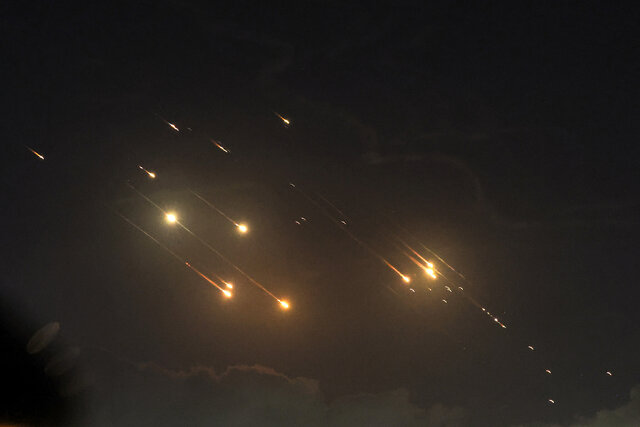
Operation Promise Sadiq 2
Iran’s response to the Zionist regime will be done at the appropriate time and form
Regarding Iran’s response to the Zionist regime and whether developments in the region, such as the ceasefire in Lebanon and Gaza, can affect this response, this Iranian diplomat said: “We are clear, what the Zionist regime did on October 26 was a new attack against the Islamic Republic of Iran.” He said that according to the right of legitimate defense as a fixed and recognized principle in international laws and the United Nations Charter, he has the right to answer and we reserve this right for ourselves. This attack was carried out on our soil and we must respond to it, but the Islamic Republic of Iran always acts wisely and intelligently and will respond at the right time and in the right way. It is natural that the developments in the region have an impact on the time and form of this response, in any case, we will consider the benefit of the region and the resistance of Palestine, Lebanon and Syria, and finally we will make a decision that will be more beneficial for Iran and the region. and we will implement it.
In response to the question of whether regional developments affect how the attack will be carried out or not, he clarified once again: We reserve the right to respond, but when and how this response will be carried out, we will consider all regional factors in We will consider this case.
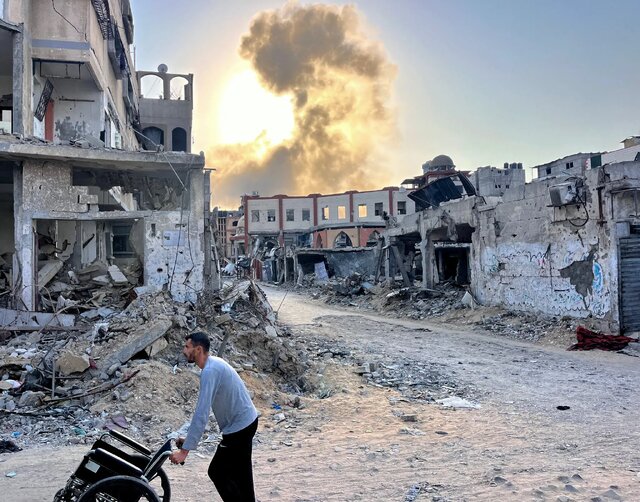
Zionist attacks on Gaza
The war against Gaza has one problem, and that is Netanyahu
Pointing out that “Iran has not received a message from America about the ceasefire in Gaza”, Araqchi said regarding his prediction about the cessation of the Gaza war in the near future: I think the war against Gaza has one problem and that is Netanyahu who is stuck in a deadlock. has fallen Israel’s official goal of entering Gaza to commit all these crimes and killings was to destroy Hamas and free its prisoners, but today, despite receiving many attacks, Hamas still exists and has not been destroyed, nor have the prisoners been released.
Iran’s Foreign Minister continued: If Israel enters into negotiations with Hamas regarding a ceasefire and the release of hostages, this also means Israel’s failure, that is, Israel failed to achieve its goals and was forced to negotiate with Hamas, which it wanted to destroy. The same thing happened with Hezbollah and no one can say that Israel won in Lebanon. Israel’s entry into the negotiations was forced due to its losses and losses, and this means Israel’s defeat. This is Israel’s problem in the Gaza war, and the world must intervene and put an end to the crimes of the Zionist regime and its prime minister and stop the genocidal war there.
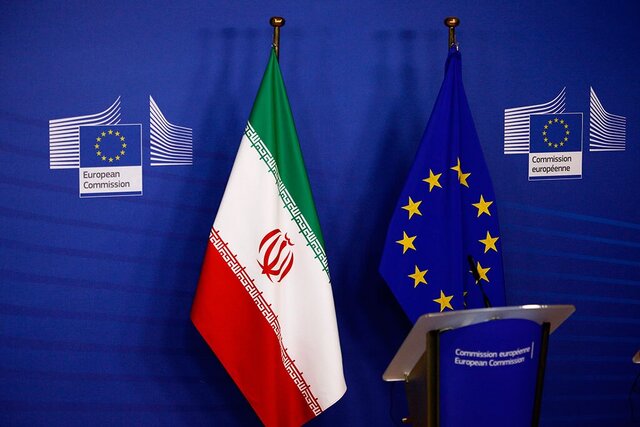
The flags of Iran and the European Union at the headquarters of this union
There are many reasons for our pessimism about Europe
In the next part of this interview, the Iranian Foreign Minister talked about Iran’s nuclear case and the issuance of a resolution against Iran in the Board of Governors of the International Atomic Energy Agency, and some predictions regarding Europe’s action to reimpose sanctions and reissuing anti-Iranian resolutions and Iran’s response to them, he said: Americans and Europeans They themselves know that Iran will respond. We officially and clearly communicated this to them and they have to decide whether they want to go towards conflict or cooperation. Our choice is cooperation. We invited Mr. Raphael Grossi (Director General of the International Atomic Energy Agency) to visit Tehran before the meeting of the Board of Governors and started the process of cooperation with him. We presented them with a new chapter of cooperation, but the Westerners prevented this work and issued the resolution. We hope that this process will be corrected and we will return to cooperation to reach an agreed solution.
In response to a question about the reason for his pessimism about the recent negotiations with Europe, before its start, Araghchi said: There are many reasons for our pessimism, in general, if the process of negotiations and cooperation does not progress and we cannot reach an agreement after the negotiations, and they are the trigger mechanism in launch the nuclear agreement, then we will reach the crisis point.
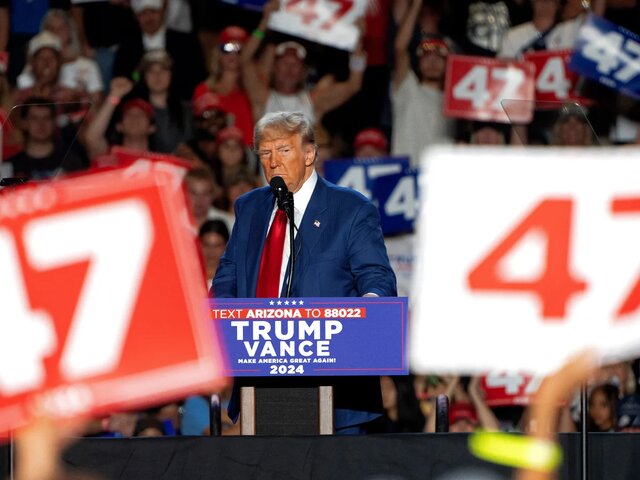
Trump’s election speech
There is no platform for dialogue with America
In the final part of his interview with al-Arabi al-Jadeed, Iran’s foreign minister said that the new American government has not yet been formed and has not announced its positions, and it is not clear whether it wants to undo the damage of its previous performance. slow or not and whether he is willing to cooperate based on the principle of respect, responsibility and commitment in evaluating the interventions of previous governments since the coup of 1952 until openly supporting Saddam in the war or not; First, these issues must be clarified.
Araghchi said: We do not intend to have a dialogue at the moment because there is no platform for such a dialogue. We have to wait to see how the new American government enacts and implements its policies.
end of message
News>RCO NEWS
RCO




